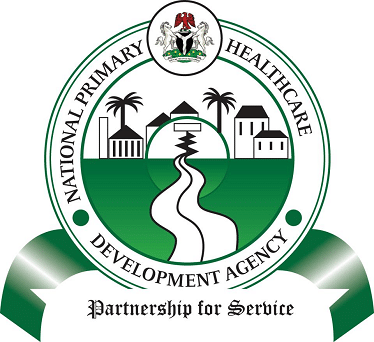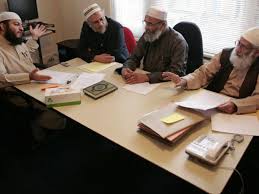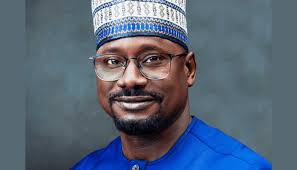25,380 PHCs lack skilled birth attendants in Nigeria- NPHCDA

By Doosuur Iwambe
The National Primary Health Care Development Agency (NPHCDA) has disclosed that 25,380 Primary Healthcare Centres (PHCs) in Nigeria have no required skilled birth attendants as only 463 which represents 1.8 per cent of 25843 have the minimum 4 SBA per facility.
It also said aside from the gross inadequacy, there is the problem of unequal distribution of available SBAs in the PHC facilities.
The Executive Director of NPHCDA, Dr Faisal Shuaib in his keynote address at a press conference in Abuja, however, said to address this major challenge, the Agency has come up with an innovation called Community-based Health Research, Innovative-training and Services Program (CRISP) to leverage the rural posting of Resident Doctors.
Shuaib explained that CRISP is a partnership between Teaching Hospitals, Federal Medical Centres, National Primary Health Care Development Agency, State Primary Health Care Boards, Local Government Health Authorities and the communities to support primary healthcare development.
Speaking further, Shuaib said the intervention will specifically focus on increasing, retaining and improving the quality, adequacy, competency, and distribution of a committed multidisciplinary primary healthcare workforce that includes facility outreach and community-based health workers supported through effective management supervision and appropriate compensation.
“CRISP aims to leverage the rural posting of Resident Doctors from teaching hospitals to boost and guarantee the quality of care at the PHC level through their active involvement in primary health service delivery. This is targeted at improving Reproductive, Maternal, Newborn, Child and Adolescent Health, amongst other health services within the benefiting communities.
READ ALSO: I “ll transform Kogi to robust, fast-growing.
“Human Resources for Health (HRH), particularly Skilled Birth Attendants, such as Medical Doctors, Midwives, Nurses, and Community Health Extension Workers (CHEWs) that have been trained on how to manage emergencies would be recruited and deployed to priority PHC facilities across the country.
“We find it extremely important and helpful that we address the human resource for health gaps in our PHCs because 80% of the incidence of maternal and child deaths in Nigeria occur at the community levels, largely due to the lack of services of skilled health workers in the PHC facilities.
“Unfortunately, the primary health care centres are the most unattractive to our skilled health workers who prefer to be stationed at urban secondary and tertiary health facilities.”
“Shuaib said while this fact has kept PHC delivery on a setback, we have scientific evidence, showing that the interventions provided by skilled health workers, namely doctors, nurses, midwives, or CHEWs trained on MLSS can reduce maternal and new-born mortality in low and middle-income countries, including Nigeria.”
He, therefore, maintained that the CRISP initiative will operate at scale involving Teaching Hospitals and Federal Medical Centres across the country.
“This means that the CRISP resident doctors from the engaged teaching hospitals and federal medical centres would be deployed to the primary health care facilities to support service provision and on-the-job capacity building of the PHC health workers. CRISP is targeted for implementation across the 36 states of the Federation plus the FCT in a phased manner.”
While speaking about funding, the NPHCDA boss pointed out that as a multi-stakeholder investment, CRISP will be funded by the Government of Nigeria with support from development partners, and philanthropists, among others as he called on media to support the CRISP initiative.
“In your capacity, the media is also a stakeholder in CRISP. Our call to you is that you support the Government and the communities to create enabling information and environment for the successful implementation of CRISP.
“As the saying goes, the wealth of a nation lies in the health of its people. The health and well-being being of the people of Nigeria has remained the government’s priority.
“We, therefore, count on your understanding and support to draw up the need for human resources for health at the primary healthcare level,” he added.
Also speaking, the World Health Organization(WHO) Country Representative, Dr Walter Kazadi Molumbo emphasized the importance of accelerating efforts in the health sector, as called for by the World Health Organization (WHO).
Molumbo disclosed that the WHO Director-General is set to unveil a strategy next week during the 75th World Assembly, highlighting the five key areas of focus: promoting health, providing health services, protecting health, empowering health through digital technology and innovation, and performing for health by strengthening WHO country offices.
The United Nations Children Fund(UNICEF) representative, Eduardo Celades highlighted the alarming statistics gaps in healthcare access and quality, particularly in Nigeria, as he emphasized that only 70% of pregnant women currently have access to antenatal care, with just 60% receiving complete antenatal checkups.
Celades also noted that only half of the newborns are attended by skilled birth attendants and neonatal and under-five mortality rates remain high.
Expressing their support and commitment, Celades announced its intention to allocate additional resources this year to expand the scope of the CRISP program.
“UNICE aims to further enhance maternal and child healthcare as this comprehensive approach aligns with their core principles and objectives”.










